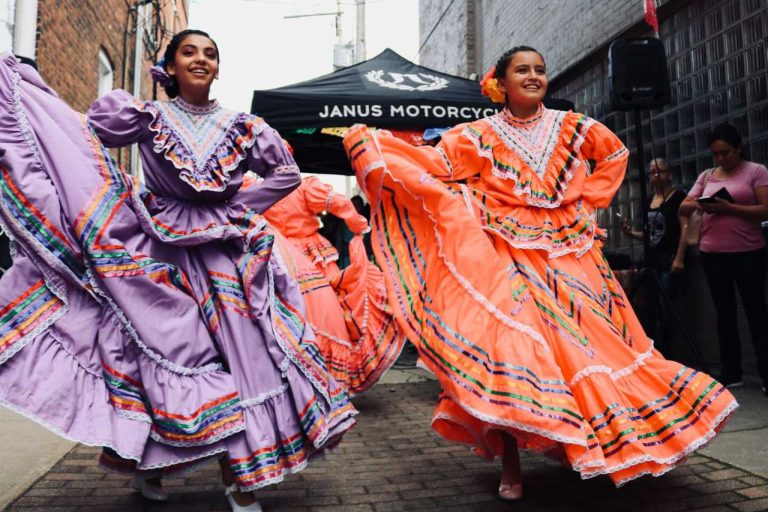
10 Essential Irregular Preterite Verbs in Spanish
DATE:
Did you know? Language is a living, breathing entity, ever-evolving and full of surprises. Spanish, with its melodious tones and rhythmic cadence, is no exception. One of its most intriguing aspects is the preterite tense, especially when it comes to irregular verbs. These verbs, often used, rarely follow the standard rules, making them both challenging and fascinating to learn. In this article, we’ll explore 10 of these popular irregular preterite verbs in Spanish, delving into their unique characteristics and conjugations.
The Intrigue of Spanish Irregular Preterite Verbs
Understanding the Preterite Tense
Before diving into the irregular verbs, let’s take a moment to understand what the preterite tense in Spanish is all about. The preterite tense is used to describe actions completed at a specific point in the past. Unlike the present tense, which indicates an ongoing action, the preterite pins down actions to a definitive timeframe.
Characteristics of Irregular Preterite Verbs
Irregular preterite verbs in Spanish are notorious for not following the standard conjugation rules. These verbs often have irregular stems or endings, and sometimes both. They require special attention as their conjugations don’t always mirror regular patterns seen in other verbs.
The Top 10 Irregular Preterite Verbs in Spanish
Now, let’s dive into the heart of the matter – the 10 popular irregular verbs in preterite. We’ll explore each verb’s infinitive form, preterite conjugation, and provide examples for context.
1. Preterite Conjugation of “Ser”
Ser is a cornerstone verb in Spanish, crucial for describing states and conditions in the past. Its preterite form is entirely different from its present tense, making it a unique case in Spanish grammar.
|
Spanish Personal Pronouns |
Conjugation |
|---|---|
|
Yo (I) |
Fui |
|
Tú (You, informal) |
Fuiste |
|
Él / Ella / Usted (He / She / You formal) |
Fue |
|
Nosotros (we) |
Fuimos |
|
Vosotros (You plural – Spain) |
Fuisteis |
|
Ellos / Ellas / Ustedes (They / They / You plural – Latin America) |
Fueron |
2. Preterite Conjugation of “Ir”
Ir, often confused with ‘ser’ due to similar conjugations in the preterite, is indispensable for discussing past movements or travels. Its conjugation in the preterite tense is identical to ‘ser’, which can be a source of confusion for learners.
|
Spanish Personal Pronouns |
Conjugation |
|---|---|
|
Yo (I) |
Fui |
|
Tú (You, informal) |
Fuiste |
|
Él / Ella / Usted (He / She / You formal) |
Fue |
|
Nosotros (we) |
Fuimos |
|
Vosotros (You plural – Spain) |
Fuisteis |
|
Ellos / Ellas / Ustedes (They / They / You plural – Latin America) |
Fueron |
3. Preterite Conjugation of “Tener”
Tener is a fundamental verb for expressing possession or obligation. In the preterite tense, it undergoes significant changes, distinguishing it from its present form.
|
Spanish Personal Pronouns |
Conjugation |
|---|---|
|
Yo (I) |
Tuve |
|
Tú (You, informal) |
Tuviste |
|
Él / Ella / Usted (He / She / You formal) |
Tuvo |
|
Nosotros (we) |
Tuvimos |
|
Vosotros (You plural – Spain) |
Tuvisteis |
|
Ellos / Ellas / Ustedes (They / They / You plural – Latin America) |
Tuvieron |
4. Preterite Conjugation of “Estar”
Estar is used to describe temporary states or locations. In the preterite tense, it is often used to indicate where someone or something was at a specific past time.
|
Spanish Personal Pronouns |
Conjugation |
|---|---|
|
Yo (I) |
Estuve |
|
Tú (You, informal) |
Estuviste |
|
Él / Ella / Usted (He / She / You formal) |
Estuvo |
|
Nosotros (we) |
Estuvimos |
|
Vosotros (You plural – Spain) |
Estuvisteis |
|
Ellos / Ellas / Ustedes (They / They / You plural – Latin America) |
Estuvieron |

5. Preterite Conjugation of “Poder”
Poder is critical for expressing ability or permission in a past context. Its preterite form can significantly alter the meaning of a sentence, making it a vital verb to master.
|
Spanish Personal Pronouns |
Conjugation |
|---|---|
|
Yo (I) |
Pude |
|
Tú (You, informal) |
Pudiste |
|
Él / Ella / Usted (He / She / You formal) |
Pudo |
|
Nosotros (we) |
Pudimos |
|
Vosotros (You plural – Spain) |
Pudisteis |
|
Ellos / Ellas / Ustedes (They / They / You plural – Latin America) |
Pudieron |
6. Preterite Conjugation of “Hacer”
Hacer is a central verb in Spanish for describing actions or tasks. Its irregular preterite form is commonly used in everyday conversation and is essential for narrating past events.
|
Spanish Personal Pronouns |
Conjugation |
|---|---|
|
Yo (I) |
Hice |
|
Tú (You, informal) |
Hiciste |
|
Él / Ella / Usted (He / She / You formal) |
Hizo |
|
Nosotros (we) |
Hicimos |
|
Vosotros (You plural – Spain) |
Hicisteis |
|
Ellos / Ellas / Ustedes (They / They / You plural – Latin America) |
Hicieron |
7. Preterite Conjugation of “Decir”
Decir plays a key role in reporting speech or conveying messages in the past tense. It has a distinct preterite form that sets it apart from its present tense usage.
|
Spanish Personal Pronouns |
Conjugation |
|---|---|
|
Yo (I) |
Dije |
|
Tú (You, informal) |
Dijiste |
|
Él / Ella / Usted (He / She / You formal) |
Dijo |
|
Nosotros (we) |
Dijimos |
|
Vosotros (You plural – Spain) |
Dijisteis |
|
Ellos / Ellas / Ustedes (They / They / You plural – Latin America) |
Dijeron |
8. Preterite Conjugation of “Venir”
Venir is essential for discussing arrivals or movements towards a point in the past. It has unique preterite conjugations that are important to learn for accurately describing past events.
|
Spanish Personal Pronouns |
Conjugation |
|---|---|
|
Yo (I) |
Vine |
|
Tú (You, informal) |
Viniste |
|
Él / Ella / Usted (He / She / You formal) |
Vino |
|
Nosotros (we) |
Vinimos |
|
Vosotros (You plural – Spain) |
Vinisteis |
|
Ellos / Ellas / Ustedes (They / They / You plural – Latin America) |
Vinieron |
9. Preterite Conjugation of “Ver”
Ver is crucial for talking about past experiences or observations. It’s slightly less irregular than other verbs on this list but still requires attention to its preterite form.
|
Spanish Personal Pronouns |
Conjugation |
|---|---|
|
Yo (I) |
Vi |
|
Tú (You, informal) |
Viste |
|
Él / Ella / Usted (He / She / You formal) |
Vio |
|
Nosotros (we) |
Vimos |
|
Vosotros (You plural – Spain) |
Visteis |
|
Ellos / Ellas / Ustedes (They / They / You plural – Latin America) |
Vieron |
10. Preterite Conjugation of “Querer”
Querer is used to express desire or love in the past and undergoes significant changes in the preterite tense, making it a verb of high interest for learners.
|
Spanish Personal Pronouns |
Conjugation |
|---|---|
|
Yo (I) |
Quise |
|
Tú (You, informal) |
Quisiste |
|
Él / Ella / Usted (He / She / You formal) |
Quiso |
|
Nosotros (we) |
Quisimos |
|
Vosotros (You plural – Spain) |
Quisisteis |
|
Ellos / Ellas / Ustedes (They / They / You plural – Latin America) |
Quisieron |

Irregular Preterite Verbs in Spanish Examples
1. “Ser” in the Preterite: Illustrating States or Conditions in the Past
The use of “ser” in the preterite tense is integral for discussing past events, states of being, or conditions that were definitive and specific to a particular time.
Ayer fue mi cumpleaños. (Yesterday was my birthday.)
Fue un día soleado. (It was a sunny day.)
La fiesta fue en mi casa. (The party was at my house.)
2. “Ir” in the Preterite: Describing Past Movements or Travels
Conversely, “ir” in the preterite focuses on movements or journeys. It’s essential for talking about where someone went or the direction they took at a specific moment in the past.
Fui al cine. (I went to the cinema.)
Fuimos al mercado ayer. (We went to the market yesterday.)
El año pasado fui a España. (Last year I went to Spain.)
QUICK NOTE…
In the preterite tense, “ser” and “ir” share identical conjugations but serve distinctly different purposes. “Ser” is used to define identity, characteristics, or conditions at a specific point in the past, while “ir” describes movement or travel that occurred.
3. Tener in the Preterite: Expressing Possession or Obligation
“Tener” is used in the preterite tense to indicate possession or obligations that were fulfilled in the past.
Tuve una idea genial. (I had a great idea.)
Tuviste suerte con el clima. (You were lucky with the weather.)
Tuvieron que salir temprano. (They had to leave early.)
4. in the Preterite: Indicating Temporary States or Locations
“Estar” in the preterite is often used to talk about where someone or something was located at a specific time in the past or to describe temporary states.
Estuvimos en la playa todo el día. (We were at the beach all day.)
Estuvo enfermo la semana pasada. (He was sick last week.)
Estabas en la oficina cuando te llamé. (You were in the office when I called you.)
5. Poder in the Preterite: Demonstrating Past Ability or Permission
“Poder” in the preterite shows the ability to do something or the permission granted in a past context.
No pude terminar mi tarea. (I couldn’t finish my homework.)
Pudimos ver las estrellas anoche. (We were able to see the stars last night.)
¿Pudiste hablar con ella? (Were you able to talk to her?)
6. Hacer in the Preterite: Describing Completed Actions or Tasks
“Hacer” is used in the preterite tense to describe actions or tasks that were completed in the past.
Hice toda la comida. (I made all the food.)
Hicieron un viaje largo. (They made a long trip.)
¿Hiciste la tarea? (Did you do the homework?)
7. Decir in the Preterite: Reporting Past Speech or Messages
“Decir” in the preterite is pivotal for reporting what was said or conveying messages in a past context.
Dijeron que vendrían. (They said they would come.)
Dije la verdad. (I told the truth.)
Nos dijiste que estarías aquí. (You told us you would be here.)
8. Venir in the Preterite: Discussing Past Arrivals or Movements
“Venir” is used in the preterite tense to talk about arrivals or movements towards a point in the past.
Vinieron mis amigos a casa. (My friends came to my house.)
Vino a la reunión tarde. (He/She came to the meeting late.)
¿Vinisteis a la fiesta ayer? (Did you all come to the party yesterday?)
9. Ver in the Preterite: Reflecting on Past Experiences or Observations
“Ver” in the preterite is essential for discussing what was seen or observed in the past.
Vimos una película interesante. (We saw an interesting movie.)
Vi a Juan en el parque. (I saw Juan in the park.)
Vieron el amanecer juntos. (They saw the sunrise together.)
10. Querer in the Preterite: Expressing Past Desires or Emotions
“Querer” in the preterite is used to express desires or feelings that were experienced in the past.
Quisieron ayudar, pero no pudieron. (They wanted to help, but they couldn’t.)
Quise llamarte, pero se me olvidó. (I wanted to call you, but I forgot.)
¿Quisiste ver esa película? (Did you want to see that movie?)
Each of these verbs showcases the diversity and complexity of the Spanish preterite tense. Understanding their nuances and conjugations is key to mastering past-tense narration in Spanish.

Ready to Master the Irregular Preterite Verbs in Spanish?
Mastering the irregular preterite verbs in Spanish can be a challenging but rewarding journey. With the right approach, tools, and guidance from SpanishVIP’s dedicated teachers, you can confidently navigate this aspect of the Spanish language. Remember, it’s not just about memorizing rules; it’s about immersing yourself in the language and culture.
To take your Spanish to the next level, start with a free 1:1 class or enjoy free 7 days of group classes with SpanishVIP. Embrace the beauty of Spanish and unlock new worlds of communication and understanding!











